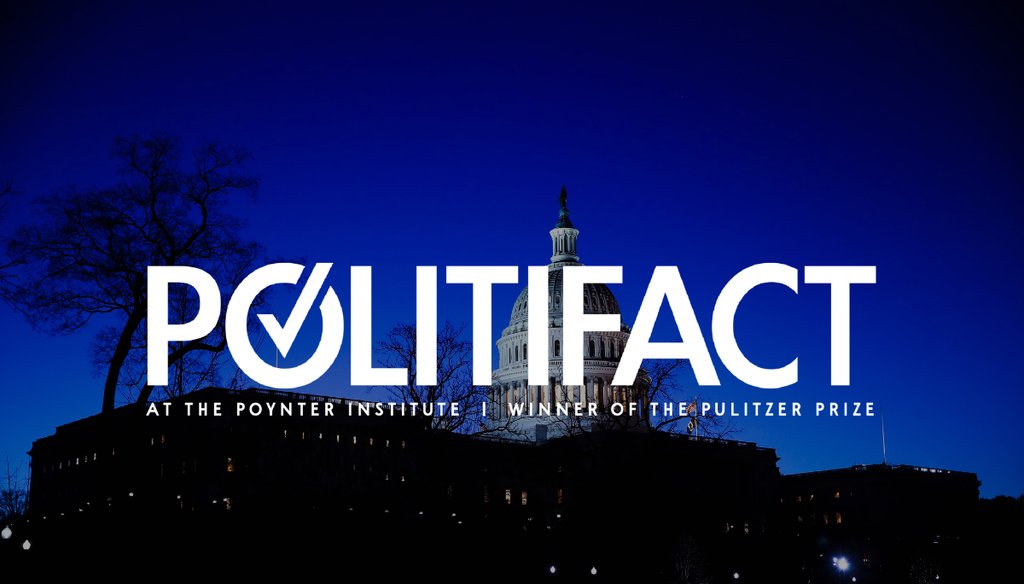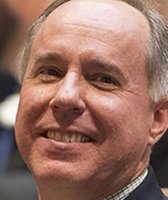Get PolitiFact in your inbox.

(AP)
The claims we looked at in September 2022, as the November election drew closer, became more pointed — and often more off the mark.
Each month we offer readers of High Five — a look at some of our most-clicked, but also some others that are especially relevant or timely — such as the ones here involving the races for senator and governor.
Here are our picks for September:
1. Democratic Party of Wisconsin: Says "Tim Michels doesn’t think gay people should be out in public."
Democrats seized on a comment from Michels, now the GOP gubernatorial candidate, from his 2004 U.S. Senate run against then-incumbent Democrat Russ Feingold.
When asked how the candidates would protect the rights of LGBTQ Wisconsinites, Michels said in an Oct. 16, 2004, debate that every American "deserves to be treated as an American, but I think when you bring it out of your house, and onto the public street, that's where I differ. I believe in family values."
He went on to say that he would support a constitutional amendment that would specify marriage as being between a man and a woman.
A spokesperson for Michels’ campaign pointed to a June 28, 2022, radio interview Michels did with WISN radio host Dave Michaels in which he said the issue of gay marriage was settled by the U.S. Supreme Court seven years ago and that it’s not a priority given other issues he’d want to focus on as governor.
Michels has made clear his opposition to a critical issue for the LGBTQ community and has criticized Democrats for focusing on such issues.
But the claim that he doesn’t believe gay people should be able to own their identity in public — especially when its one reference comes from a decade plus-ago debate — is an exaggeration.
We rated the claim Mostly False.
2. President Joe Biden: Says Ron Johnson "wants to put Social Security and Medicare on the chopping block every single year."
In Wisconsin’s U.S. Senate race, incumbent Johnson is hammering opponent Lt. Gov. Mandela Barnes, a Democrat, for his views on social justice issues and crime. Barnes is hitting Johnson by pointing to his record and arguing the senator has left working people behind.
That includes criticism of an idea Johnson advocated in early August: that Medicare and Social Security, two immensely popular programs that affect millions upon millions of older Americans, should be subjected to annual budget deliberations.
Johnson has repeatedly said he wants to put the Medicare and Social Security under the stricter scrutiny of discretionary spending so they remain financially solvent. Still, putting them up for an annual review would increase the chances they’d be cut, simply because there would be an opportunity every year to do so.
We rated the claim Mostly True.
3. Republican Governors Association: Says President Joe Biden "recently said that 48.8% of Wisconsin voters are threats to democracy."
In a Sept. 1 prime-time speech in Philadelphia, Biden called out his predecessor, former President Donald Trump, and "MAGA Republicans," saying they "represent extremism that threatens the very foundations of our republic."
A spokesperson for the Republican Governors Association, Maddie Anderson, wrote in an email blast Sept. 5 — the day of a visit by Biden to Milwaukee — that Biden "recently said that 48.8% of Wisconsin voters are threats to democracy."
When asked for backup for the association’s claim, Anderson pointed to Biden’s remarks in Philadelphia, the criticism they drew and the percentage of Wisconsin voters who cast their vote for Trump in the 2020 election. That’s the 48.8%.
But Biden separated Republicans who embrace Trump’s far-right, election-denial positions from mainstream Republicans, who still may have voted for Trump in 2020. And in Wisconsin, recent polling shows that there is not uniform support for Trump or his views, even among Republicans.
We rated the claim False.
4. Lt. Gov. Mandela Barnes, Democratic candidate for U.S. Senate, says under his plan to end cash bail "the Waukesha perpetrator wouldn’t have been released "
The "Waukesha perpetrator," of course, refers to Darrell Brooks Jr., 39, who faces 77 charges, including six counts of first-degree intentional homicide, following the Nov. 21, 2021, attack on the Waukesha Christmas Parade in which six people were killed and more than 60 were injured. Jury selection in that trial got underway Oct. 3.
The March 2016 cash bail measure Barnes sponsored included a provision that would require a judge to hold a defendant in custody if there was "clear and convincing evidence" that the defendant would cause serious bodily harm to a member of the community."
On the day of the parade attack, the Milwaukee Journal Sentinel reported, Brooks had two open felony cases in Milwaukee County, a civil warrant in Waukesha County, an open criminal warrant out of Nevada and an open criminal case in Georgia.
Five days before the November 2021 parade attack, Brooks had been released on $1,000 bail in a 2021 domestic violence case, in which he was accused of punching and running over a woman with the same SUV he is accused of using to kill and injure people at the Waukesha parade.
It’s impossible to know how a judge would have ruled. In short, the Barnes campaign is stating a certainty where only a possibility — albeit a strong one — exists.
We rated the claim Mostly True.
5. National Republican Senatorial Committee: Says "‘Mandela Barnes … wants to release 50% of the prison population when 68% is classified as ‘violent offenders.’"
Republicans have zeroed in on the record of Barnes, who is facing incumbent U.S. Sen. Ron Johnson, as it relates to crime and punishment — or, in one scenario, crime and a lack of punishment.
In a Sept. 9 news release, the committee claimed that Barnes "wants to release 50% of the prison population when 68% is classified as ‘violent offenders.’"
Although Barnes has advocated for reducing the state’s prison population, he hasn’t endorsed the immediate release of 50% of inmates — and there is a key difference in those two words. Reducing the number of inmates would likely require years of policy changes, as opposed to just letting people out of prison, no matter their offense.
Meanwhile, the number of people who have been convicted of committing violent offenses is a large portion of the prison population — but largely because other offenses allow for shorter jail times.
This claim is partially accurate, but leaves out some important details or takes things out of context. We rated it Half True.
Our Sources
PolitiFact Wisconsin


















































